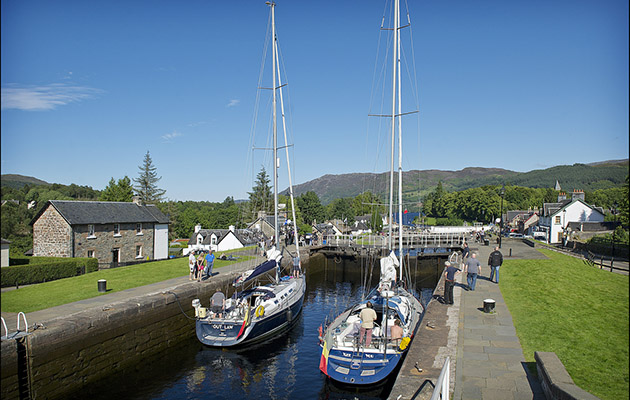From 2019 carbon monoxide alarms onboard will be mandatory for cruising certain waterways in the UK
Sailors using certain waterways and harbours in the UK will have to fit a carbon monoxide (CO) alarm on their boat from next year.
The Boat Safety Scheme (BSS) is currently consulting on new requirements to install a mandatory CO alarm onboard and has said it will come into effect from January 2019. It will apply to all classes of boat with accommodation.
This will affect boaters using the Scottish Canals, BWML marinas, Bristol Harbour, all Canal & River Trust waterways, The Broads, the rivers Medway, Thames, Blackwater, Chelmer, Cam, Dee, Wey, and other waterways run by navigation authorities that apply BSS regulations.
The BSS said it would be down to the individual authorities to implement the new requirement.
In terms of enforcement, the mandatory CO alarm would, on 1 April 2019, become part of the four-year BSS examination of vessels, a boat-equivalent of an MOT, which is needed to cruise BSS regulated waterways. Officers from the appropriate navigation authorities will do spot checks in the meantime.
The consultation by the BSS follows recommendations by the Marine Accident Investigation Branch (MAIB), which has looked into the deaths of seven people from carbon monoxide poisoning on board recreational boats over the past 10 years.
An MAIB spokesman said that CO alarms were the only way of detecting the gas — which is odourless and tasteless — and should be mandatory onboard.
‘While none of the fatal accidents involving carbon monoxide over the last 10 years involved sailing boats, it is just as important that sailing boat owners are aware of the dangers of carbon monoxide. There are many sources of this poisonous gas, including cooking stoves and heaters, so we would encourage all vessel owners to fit alarms,’ he stressed.
Continues below…
Buyer confirmed for Bavaria Yachts
Hundreds of jobs have been secured following the announcement that a buyer has been found for Bavaria Yachts
Henri Lloyd to relaunch in 2019
The new owners of the Henri Lloyd brand have announced a new range for 2019 adapted for one design sailing,…
The best skippers
The best skippers ... the editor's welcome to the November issue of Yachting Monthly
The Broads Authority has welcomed the introduction of mandatory CO alarms by the BSS. In June 2016, Alan Frost and Tina Wilkins died of carbon monoxide poisoning on board their motor cruiser, Love for Lydia, while on Wroxham Broad.
The head of safety management at the Broads Authority, Steve Birtles, said: ‘It is our intention to adopt the proposed BSS requirement from 1 January 2019 for suitable CO alarms in good condition to be present in all classes of boats with accommodation, private boats, hire boats and non-private such as workboats and floating restaurants.’
In the UK, there is no requirement for recreational boats to be fitted with a CO alarm.
The MAIB said the current EU Recreational Craft Directive (RCD), which sets out the minimum technical, safety and environmental standards for new boats, relies on ‘elements of design to prevent exhaust gases reaching accommodation areas’, with ventilation in living spaces and ensuring internal exhaust leaks are isolated and contained.
The RCD does ‘not protect occupants from other sources of CO such as external exhaust emissions,’ said the MAIB.
It has previously written to the UK government asking it, through the RCD, to make carbon monoxide alarms mandatory on all new boats. This was rejected in 2015.
The BSS consultation on having mandatory CO alarms runs until 9 November and can be found at www.boatsafetyscheme.org







